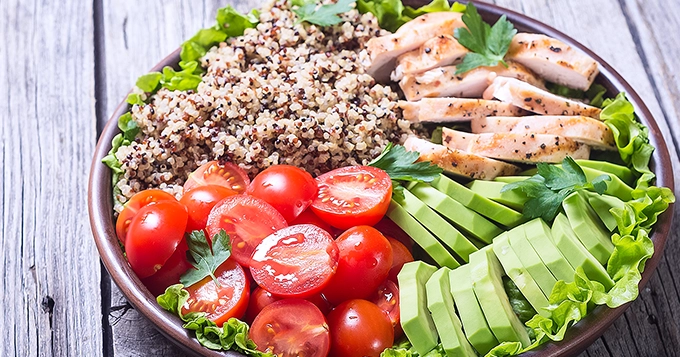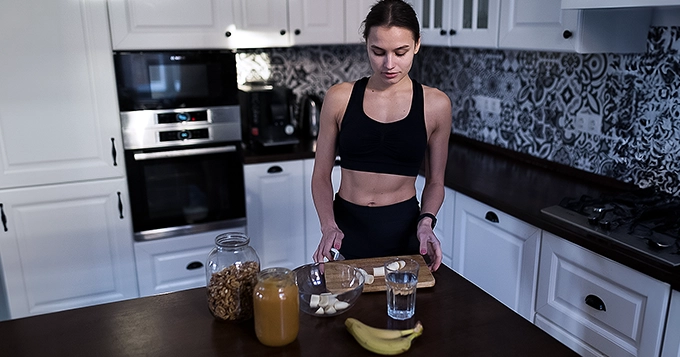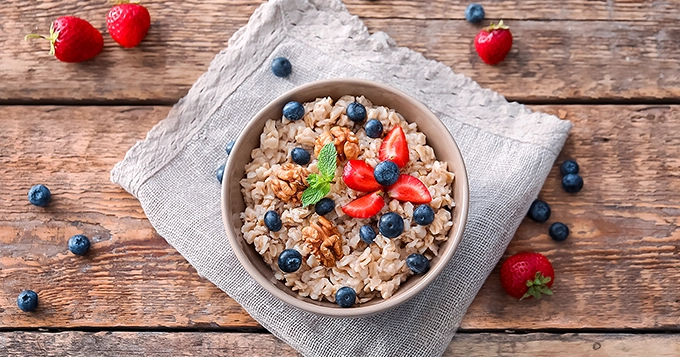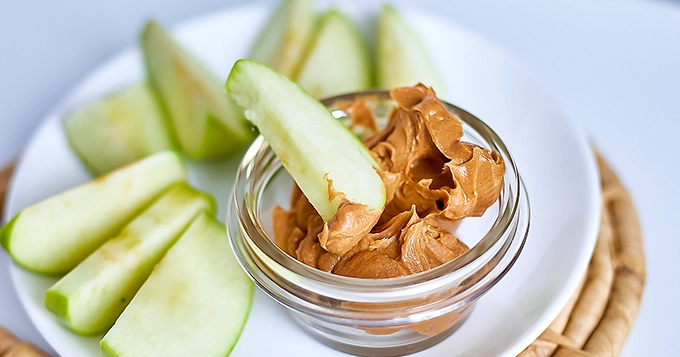When it comes to optimizing workout performance, pre-workout nutrition plays a pivotal role. Among the various nutrients, carbohydrates are a primary energy source that fuels our muscles during exercise. Consuming the appropriate carbs before a workout can dramatically improve endurance, strength, and overall athletic performance. However, not all carbohydrates are the same. Therefore, knowing the differences may help you make better decisions.
What are Carbohydrates?
Carbohydrates are one of the three macronutrients required for human nutrition, alongside proteins and fats. They are organic carbon, hydrogen, and oxygen substances that function as the body’s principal energy source. Many foods, such as fruits, vegetables, cereals, and dairy products, include carbohydrates. Once taken, carbohydrates are broken down into glucose, which the body’s cells use to generate energy, especially during exercise.
Types of Carbohydrates
Carbohydrates can be broadly categorized into two main types: simple carbohydrates and complex carbohydrates. Each type has distinct characteristics, benefits, and drawbacks that can impact your energy levels and workout performance. Knowing these differences will help you decide which carbohydrates to consume before exercising.
Simple Carbohydrates
Also known as sugars, simple carbohydrates are composed of one or two sugar molecules. Examples include glucose, fructose, and sucrose. Because of their simple structure, these carbohydrates are easily digested and absorbed into the bloodstream, giving an immediate energy supply.
Here are some benefits of simple carbohydrates:
- Provide immediate energy, which can be beneficial for short, intense workouts.
- It can help quickly replenish glycogen stores after a workout
Here are some of its drawbacks:
- It can induce rapid rises in blood sugar levels followed by rapid reductions, resulting in energy crashes.
- It may not provide sustained energy for longer workouts or endurance activities.
Complex Carbohydrates
Complex carbohydrates are made up of longer sugar molecules that take longer to break down. These nutrients can be found in whole grains, legumes, and starchy vegetables alike. Because they digest more slowly, they provide a more steady and constant energy release.
Its benefits are as follows:
- Provide sustained energy, making them ideal for longer workouts or endurance activities
- Maintain constant blood sugar levels and prevent energy crashes
- Often rich in fiber, vitamins, and minerals
It also has its drawbacks, such as:
- They take longer to digest, so they may not be suitable for consumption immediately before a workout
- It may cause gastrointestinal discomfort if consumed in large quantities too close to exercise
Optimal Timing for Carbohydrate Intake Before Workouts
The timing of carbohydrate intake is crucial for maximizing energy levels and performance during workouts. Consuming carbohydrates at the right time ensures that your muscles have adequate fuel to sustain activity and prevent fatigue. Personal preferences and individual metabolism also come into play; as everyone metabolizes carbohydrates differently, it’s important to experiment and figure out what suits you the best.
Immediate pre-workout consumption (About 30-60 minutes before exercise)
It should focus on simple carbohydrates like fruits (bananas, apples), sports drinks, or energy gels. These options provide a quick energy source due to their rapid digestion and absorption, helping maintain blood glucose levels during the workout and preventing early fatigue. However, it’s important to avoid high-fiber foods at this time to prevent gastrointestinal discomfort.
Early Pre-Workout Nutrition (Around 1-2 hours before exercise)
For early pre-workout nutrition, a combination of simple and complex good carbs pre-workout works best. Examples include a smoothie with fruit and yogurt, oatmeal with honey, or a whole-grain sandwich with lean protein. This method enables a more steady release of energy during the workout, rebuilding glycogen stores and giving sustained energy for longer activities. Including a small amount of protein can also aid muscle recovery and enhance energy levels.
Mid pre-workout meals (taken 3-4 hours before exercise)
Mid-pre-workout meals should be balanced and contain complex carbohydrates, lean protein, and healthy fats. Meals like chicken with brown rice and vegetables, quinoa salad, or a turkey and avocado wrap are good carbs pre-workout. These provide substantial energy reserves through glycogen stores, ensuring the body is well-nourished and ready for an intense or prolonged workout. This timing allows ample digestion time, reducing the risk of gastrointestinal issues.
Best Carbohydrate Sources
Selecting the right sources of carbohydrates is essential for maximizing the benefits of your pre-workout nutrition. Different foods provide varying types and amounts of carbohydrates, each with unique advantages that can impact your energy levels and performance.
Understanding which pre-workout carbs sources are most effective for pre-workout nutrition can help you fuel your body appropriately and make the most of your training regimen.
- Fruits
Fruits are an excellent source of simple carbs in preworkouts, providing quick and easily digestible energy. Options like bananas, apples, berries, and oranges are rich in natural sugars and vitamins, making them ideal for a quick energy boost before a workout.
Because of their high potassium level, which helps avoid muscle cramps, bananas, in particular, are a favorite food among athletes. The fiber in fruits also aids digestion and provides a gradual release of energy, making them suitable for short and longer workouts.
- Whole Grains
Long-lasting energy is provided by complex carbohydrates, which are present in whole grains, including quinoa, brown rice, oats, and whole wheat. These grains improve general health and satiety and are high in fiber, vitamins, and minerals.
Oatmeal, for example, is a popular pre-workout carbohydrate choice because it is easy to prepare and digest and offers a steady release of energy. Quinoa is another excellent option due to its high protein content, which supports muscle repair and growth in addition to providing carbohydrates for energy.
- Starchy Vegetables
Starchy vegetables like sweet potatoes, potatoes, and corn are great sources of complex carbohydrates. These vegetables provide a good balance of energy and nutrients, making them suitable for consumption a few hours before a workout.
Sweet potatoes are particularly beneficial due to their high Vitamins A and C content, antioxidants, and fiber, which support overall health and provide sustained energy.
Quick and Easy Pre-Workout Snacks
For those who need a fast and convenient energy boost, these simple snacks can be prepared in minutes and provide the right balance of pre-workout carbs and other nutrients:
- Banana with Peanut Butter: A classic combination that provides protein and good fats from the peanut butter along with fast-digesting carbohydrates from the banana.
- Greek Yogurt with Honey and Berries: Greek yogurt provides protein, while honey and berries add simple carbohydrates and antioxidants for a quick energy boost.
- Apple Slices with Almond Butter: This snack pairs the fiber and vitamins in apples with healthy fats and protein in almond butter, providing sustained energy.
Full Meal Options
If you have more time before your workout, a balanced meal can help ensure you have plenty of energy and all the necessary nutrients:
- Oatmeal with Banana and Almonds: Cooked oats provide complex carbohydrates and fiber, while the banana adds quick-digesting sugars, and the almonds contribute protein and healthy fats.
- Chicken and Brown Rice Bowl: Brown rice gives fiber and complex carbs, while lean chicken breast supplies protein. For added vitamins and minerals, stir in some cooked vegetables.
- Quinoa Salad with Vegetables and Chickpeas: Quinoa is a complete protein and a great source of complex carbohydrates. Combine it with a variety of colorful vegetables and chickpeas for a nutrient-dense meal.
Combining Carbohydrates with Other Nutrients
While carbohydrates are essential for fueling your workouts, combining them with other nutrients like protein and fats can enhance their effectiveness and provide additional benefits. Healthy fats promote overall health and energy levels, while protein helps muscles grow and repair.
Dehydration can affect both physical and cognitive function, therefore electrolytes and water are also necessary to keep the body functioning at its best and avoid cramping. Electrolytes, such as magnesium, potassium, and salt, are essential for maintaining fluid and muscle balance.








